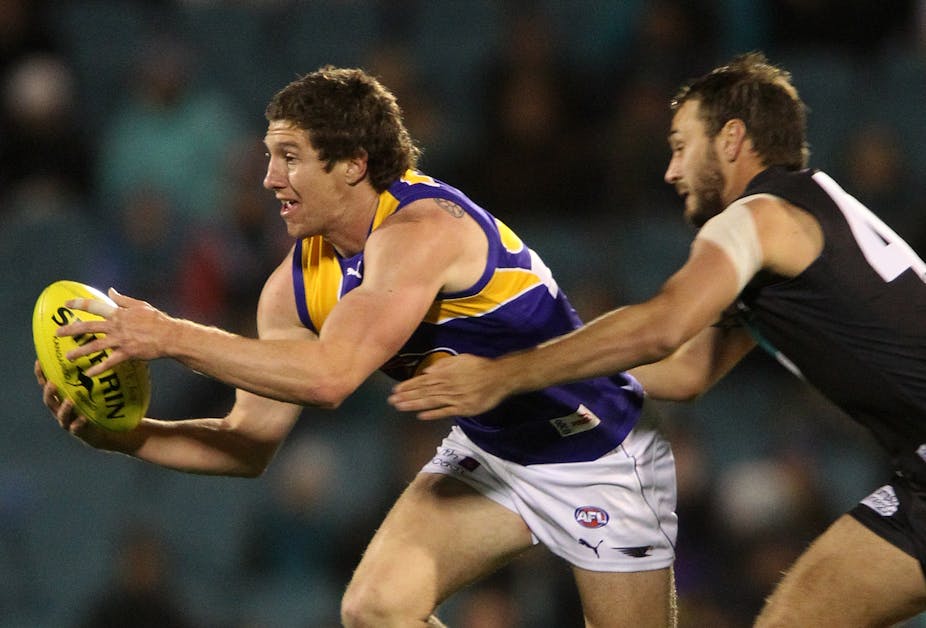AFL CEO Andrew Demetriou constantly reminds us that women love Aussie Rules and that the AFL returns that respect and allegiance. The key expression of this regard, the AFL’s Respect and Responsibility Policy, turns six this year. It is designed, in part, to instil in players and clubs’ culture a sense of the values held and expected by the wider AFL and Australian communities.
How’s that working out, Andrew?
Not so well, it would seem. The McGinnity saga is just the latest incarnation, a bead on the strand of a necklace strung in the last year by a collective effort at St Kilda, the ongoing Andrew Lovett saga, and a number of regional club incidents of sexual misconduct, some of which have been before the courts.
That’s not to suggest that no change has occurred. Historically, we might not even have heard of the McGinnity incident. It may have been “resolved” off the park, between blokes. There may have been a little rejoinder of some kind.
In 2011, we instead have vocal and widespread condemnation and analysis. Players, coaches and Commissioners express their horror and disappointment. Perpetrators offer varying degrees of mea culpa and sometimes, as with McGinnity himself, I am inclined to believe that they do regret their actions.
But some things have not changed. Even statute law has moved beyond football, prohibiting provocation as a defence; but in footy, “the heat of the moment” excuse still springs forth, as somehow excepting the players from those community standards the R&R policy seeks to enshrine. But how do you do that?
How does a culture of respect and responsibility for women get implemented? By catching a young man who has royally screwed up and making him suffer ultra humiliation in front of the sports media? By demonstrating to him what’s expected after he has transgressed?
Call me mad, but in my world, a policy gets rolled out and implemented with the intention of avoiding such crises, rather than being wielded merely in outraged reaction. And therein lies the real test of the AFL’s claimed commitment to respect for women.
If you want successful, competitive young men, who are scrutinised in the media and often idolised by young women, to understand what is expected of them, make sure they know before they cross the line. McGinnity knows now, for sure. Many will argue that he already knew.
It’s only four years ago, two years into the life of the R&R Policy, that fellow Eagle Adam Selwood offered a comparable sledge to Docker Des Headland; the tattooed figure cited turned out to be Headland’s child, but Selwood “didn’t know that”, and thus he was cleared.
I think what we have here is two different approaches to “community standards”; there’s the notional one in the training vids and the Powerpoint presentations by experts, which the players no doubt endure on a regular basis.
And then there’s the lived nightmare of tabloid TV on your doorstep, asking how you’d feel if someone offered to roger your mother and do you think you crossed a line? Respect can never be sprayed on or retrospective.
If the AFL is truly serious, and the jury is out on that, they will heed what women (and some men) are saying and factor it pre-emptively into players’ cultural education.
But while we still have sentiments like that offered by McGinnity’s own manager David Sierakowksi, who says the issue should not even have been mentioned by other players, we won’t get close. The only way forward is to remember that fans, including women, want to see footy players play on the ball. Not the man and not the women around him.

